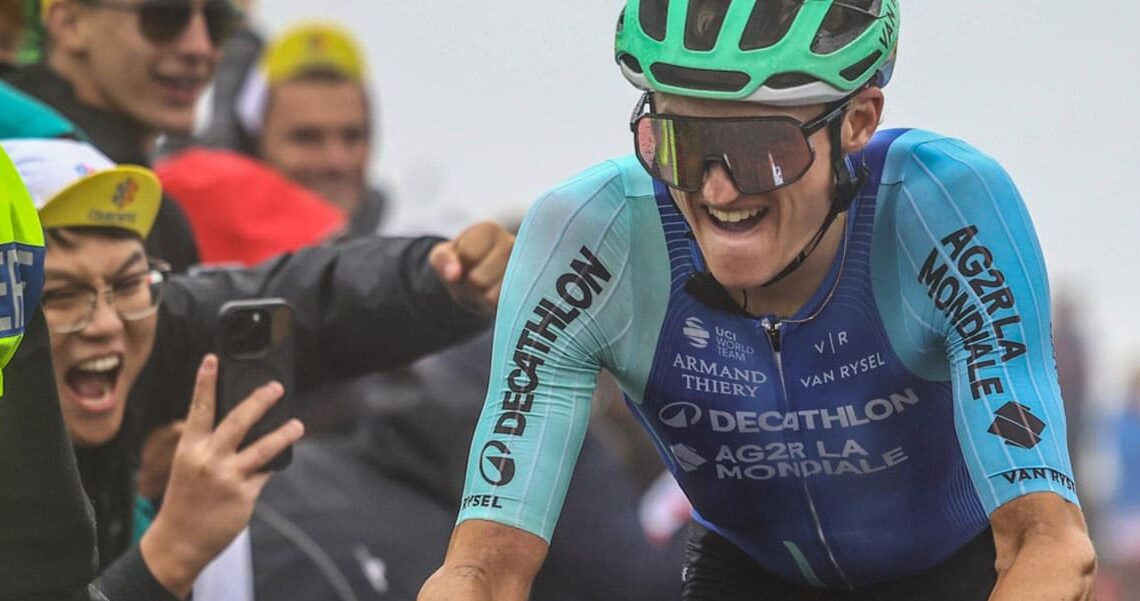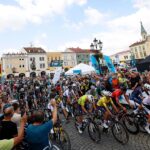
Stage 18 of the 2025 Tour de France was a stark reminder of just how extreme the race has become. With over 5,600 meters of climbing and a brutal summit finish at Courchevel, even the world’s best riders were pushed to the edge of collapse. As gaunt faces crossed the line in ones and twos, it raised a serious question: has the Tour become more about suffering than sport? This opinion piece examines whether the race’s growing intensity risks alienating riders, fans, and the spirit of cycling itself.

Opinion: I was struck by the gaunt, distressed faces of the Tour de France racers on the Tour de France stage 18, considered one of the most difficult stages in Tour history with its 5,642 total meters of climbing – that’s 18,510 feet in English- and the finishing, 26.5-k climb at Courcheval going up above 2,300-meters.

Behind the brilliant winner Ben O’Connor was devastation, riders crawling up the mountain, one by one, with an occasional duo until the 100th rider when little groups of three and four began limping in. Christian Vande Velde, reporting from the NBC moto, described Florian Lipowitz’s travails on the climb, stating that he was managing one, relatively modest speed, and simply trying to hold it through his extreme exhaustion.
The final kilometre of stage 7 – Mur-de-Bretagne
The Tour is terribly hard, of course, the ultimate test of endurance. But as my keen cycling observer friend, Wade Hinderling put it, “If they’d designed Tours like this in the 1960’s and 70’s, only Federico Bahamontes would have won.” Every mountain stage finished on top of a major climb, the second time trial was up a col, and they even made them finish up the Mûr de Bretagne. If they keep going like this, only riders weighing between 60 and 65-kilos will ever be considered as potential Tour winners, eliminating even riders like the excellent Kèvin Vauquelin, at a whopping 69-kilos, from contention.

What is wrong with finishing stages after the mountains, down in the valley towns and cities, the descents allowing riders to regroup, creating a more balanced list of contenders for the win? Yes, ok, one or even two mountain top finishes but that should be it. Otherwise, it simply becomes a climbers’ specialty race rather than one for all-arounders which, for me anyway, is much more interesting.
I worry that the ASO is embracing the idea of cycling as an extreme sport a bit too closely. The teams and riders were shocked at the Tour presentation by the promotional video that featured every crash they could fit into it, as though that was the image of the sport needing to be out in the ether.
Is the spectacle becoming too extreme?
The brutality of this year’s course design was unnecessary; I would say bordering on the abusive. I heard commentary after the stage that Pogačar had not contested the win because he, “wanted to be generous” among other things in that vein. Nonsense. The Slovenian was completely exhausted, fed up with the Tour, and wanting to go home as quickly as he could get there. That’s not a good reaction to the race by the greatest cyclist perhaps in history.
There will be no joy on the Champs-Èysèes either. The celebratory final stage where the riders could enjoy a coup de champagne before the final criterium around the Arc de Triomphe is now gone, in its place is a proper, one-day classic race with three climbs of the, very narrow, Rue Lepic climb in the Montmartre used to such great success in the Olympic Road races.
Problem is that in the constricted Olympics, there are only 90-riders, less than half of whom can actually pedal. On Sunday there would be, barring any eliminations, 161 professionals, who can all really pedal, most of whom looking for a last bit of glory, all trying to squeeze into the front before those climbs. It’s dangerous, very risky for the top riders, yet completely within the philosophy of the current design.

We are now all enjoying perhaps the greatest generation of racers in history, certainly for their wonderful aggressions and wide-open race tactics. Mathieu van der Poel (who was so depleted that he caught pneumonia during the Tour – I’ve never heard of that before), Tadej Pogačar, Jonas Vingegaard, all the new faces like Florian Lipowitz and Oscar Onley, Kèvin Vauquelin and so on. All brilliant and exciting racers, a gift to us all. It is incumbent on race organizers to not to abuse this gift, perhaps to have a bit more consideration for the rider’s well-being, and for more balanced competition. Everyone would benefit from this change in race promotion politic.
The post Has the Tour de France Become Too Brutal? A Call for Balance in Race Design appeared first on PezCycling News.




